
Chelsee Jensen, PharmD, pharmaceutical formulary manager at Mayo Clinic, explains how the process of implementing biosimilars may differ depending on practice size.

Chelsee Jensen, PharmD, pharmaceutical formulary manager at Mayo Clinic, explains how the process of implementing biosimilars may differ depending on practice size.

New research presented at the American College of Cardiology's 71st Annual Scientific Session & Expo highlights the high costs of heart failure in the United States and the benefits of healthy eating and exercise as preventive measures.

From taking part in clinical research at a local location to foregoing aggressive therapy in favor of quality of life, patients with cancer are seeking new options, said panelists at the 2022 Annual Conference of the National Comprehensive Cancer Network (NCCN).

Orly Vardeny, PharmD, MS, core investigator, Center for Care Delivery and Outcomes Research, and associate professor of Medicine, University of Minnesota Medical School, discusses key barriers to access of novel therapies and what sessions she’s looking forward to during the American College of Cardiology's (ACC) 71st Annual Scientific Session.

Although the medication therapy management program in Tennessee's Medicaid population did not reduce costs, some adherence to medication improved and emergency department visits improved.

Jeffrey Casberg, vice president of pharmacy at IPD Analytics, discussed some of the regulatory and legal hurdles that generic and biosimilar companies have to face on the road to market launch.
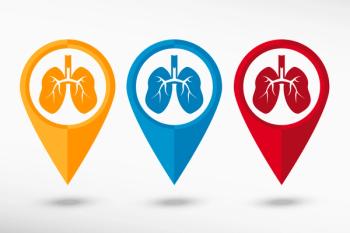
Patients with severe asthma continue to have residual disease despite initiating treatment with biologics, and severe uncontrolled asthma is associated with higher economic burden compared with controlled asthma, according to 2 posters.

Racial and ethnic health disparities are documented and substantial, but the data are out there to create programs that successfully address these disparities, said panelists.
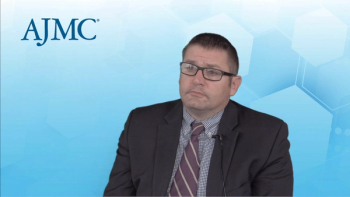
Michael Ciarametaro, MBA, vice president of research at the National Pharmaceutical Council, discusses the balance between lowering drug prices and encouraging innovation in new drug classes for serious diseases.

The American College of Cardiology will host its annual conference beginning Friday, April 1, 2022, both in-person and online.

A Monday session at the 2022 American Academy of Dermatology Annual Meeting discussed strategies for risk stratification and therapeutic management of nonmelanoma skin cancers.

Jonathan Kentley, MBBS, MSc, research fellow at Memorial Sloan Kettering Cancer Center, explains ways artificial intelligence (AI) is being used in dermatology, including smartphone applications, at the 2022 American Academy of Dermatology Annual Meeting.

Bernice Kwong, MD, clinical professor of dermatology, Stanford University, expands on her session about graft-versus-host disease diagnosis and management presented at the 2022 American Academy of Dermatology Annual Meeting, emphasizing the importance of the relationship between patients and doctors.

Clinical trial recruitment and management strategies for diverse populations are among the challenges that affect dermatology care quality and access, according to panelists at the 2022 American Academy of Dermatology (AAD) Annual Meeting.

Panelists reviewed the latest advancements in clinical testing for melanoma, targeted therapy implications, and strategies for patient selection at a session on genetic and molecular testing at the 2022 American Academy of Dermatology (AAD) Annual Meeting.

David Rosmarin, MD, vice chair of research and education, Department of Dermatology, Tufts Medical Center, discusses best practices for choosing biologics, as well as his late-breaking findings on ruxolitinib cream for vitiligo at the 2022 American Academy of Dermatology (AAD) Annual Meeting.

Robert Sidbury, MD, MPH, chief, Division of Dermatology, Seattle Children's Hospital, sat down to discuss comorbidities newly associated with atopic dermatitis at the 2022 American Academy of Dermatology Annual Meeting.

A panel discussion at the 2022 American Academy of Dermatology Annual Meeting addressed the association between food and skin manifestations, as well as dietary triggers and recommendations in the management of a myriad of dermatologic conditions.

Late-breaking findings at the 2022 American Academy of Dermatology Annual Meeting showed ruxolitinib cream was associated with clinically significant improvement in facial and total body repigmentation vs vehicle in the treatment of adolescent and adult patients with nonsegmental vitiligo over 52 weeks.

Jonathan Silverberg, MD, PhD, MPH, discusses key differences regarding epidemiology, genetic risk factors, and clinical manifestations of pediatric and adult-onset atopic dermatitis, as well as recommended therapeutic approaches for adult patients.
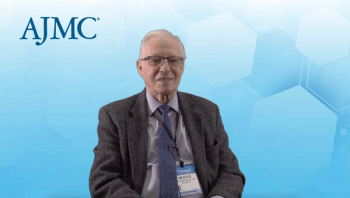
Alan Menter, MD, chairman of dermatology, Baylor University Medical Center, discussed some of the updated psoriasis guidelines at the 2022 American Academy of Dermatology Annual Meeting.
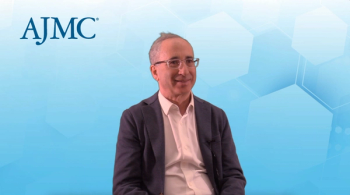
The lack of racial representation in dermatology education prompted the launch of Project IMPACT, explained Art Papier, MD, dermatologist, CEO, VisualDx at the 2022 American Academy of Dermatology Annual Meeting.

Angela Storseth-Cooper, associate director, Government Relations & Public Policy, The US Oncology Network, discusses state-level legislation that community oncology practices can leverage to address issues involving pharmacy benefit managers and the vertical integration of health plans and specialty pharmacies.

The annual spring meeting of AMCP 2022 will include keynote sessions on health care and marketplace trends and the specialty pharmaceutical pipeline, with a featured preconference session on bias in health care.

The Pharmacy Quality Alliance's 2022 annual meeting will return to an in-person format after 2 years. The meeting with include timely topics: quality beyond the pandemic, health equity, and remote care

At the 2022 Community Oncology Conference, Elizabeth Spurlock, MA, PHR, director, Human Resources Business Partner, Texas Oncology, discussed the prevalence of burnout among physicians, staff, and administrators, and several strategies to reduce risk and support the health care workforce.

Emerging research on therapeutics and practical approaches to managing a myriad of dermatological conditions, as well as a growing focus on diversity, equity, and inclusion will be explored at the 2022 American Academy of Dermatology (AAD) Annual Meeting, which will take place March 25-29, in Boston, Massachusetts.

Linda Stein Gold, MD, director of dermatology clinical research at Henry Ford Health System, incoming vice president, American Academy of Dermatology (AAD), previews AAD 2022 and what she looks forward to both learning and teaching others.
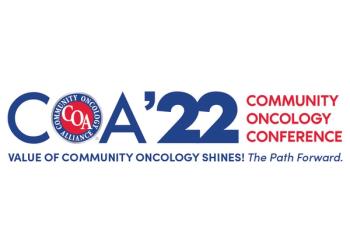
Quality measures are the lifeblood of practice transformation, but learning which ones make a difference—and how to use them to drive change—is as much an art as a science, according to 3 oncology care leaders who discussed the topic Friday at the 2022 Community Oncology Conference, presented by the Community Oncology Alliance.

During a panel at the Community Oncology Alliance’s Community Oncology Conference, speakers discuss practice-level efforts to reduce cancer care disparities.

259 Prospect Plains Rd, Bldg H
Cranbury, NJ 08512
© 2025 MJH Life Sciences®
All rights reserved.
